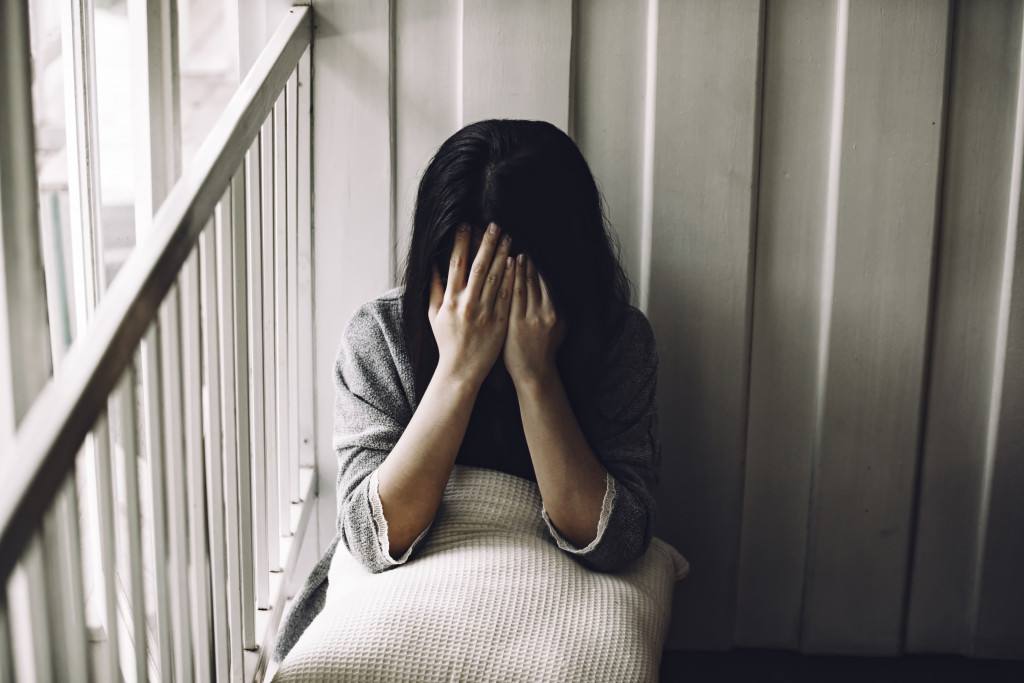While considered to be different conditions, depression and anxiety usually occur together. People suffering from these conditions feel more than just blues or stress. They experience ongoing intense or severe negative emotions and feelings. Some overlapping symptoms include difficulty in concentrating, irritability, and sleeping problems.
The worst-case scenario is that individuals with depression and anxiety have suicidal tendencies, so treatment is of top importance. Managing the symptoms and getting formal treatment plans from a doctor is different for different people. In this blog, we’ll steer away from the popular treatments and give you the unusual yet promising options for managing your conditions.
1. Leafy greens
Most greens are nutrition powerhouses that can promote body cleansing and healing. In short, they can help you feel better. Leafy greens like kale and spinach are packed with phytochemicals, antioxidants, fiber, carotenoids, and vitamins A, C, E, and K. Get a salad made from greens or drink green smoothies as healthier options.
These foods can boost your immune system, stabilize your mood, and fight different kinds of inflammation. Leafy greens are amazing choices for improving the lower dietary intake that most people with depression and anxiety have.
2. Eye movement therapy
Eye movement desensitization and reprocessing or EMDR therapy is a treatment option generally used to alleviate psychological stress. This psychotherapy technique is an effective treatment to consider if you’re suffering from depression, anxiety, trauma, or panic.
The therapist uses this technique to help individuals connect to their negative memory and thoughts and help them move towards the positive view. In other words, it uses the natural ability of your brain to promote health. Find a credible therapist to receive EMDR therapy under the recommended healthcare guidelines.
3. Ketamine
People suffering from an anxiety disorder or severe depression can try ketamine therapy. Compared to other anesthetics, ketamine doesn’t slow a person’s heart rate or breathing. Take note that ketamine is an actual drug that can produce sensory and visual distortions and feelings of reality.
For that reason, it’s imperative to receive it under the supervision of a certified physician. They can guarantee that the patient will receive the appropriate doses in safe delivery techniques. A thorough examination will be required to confirm if ketamine therapy is safe and best for you. Depending on the improvement of symptoms and reactions of your body, follow-up infusions may be necessary.

4. Bouldering
As a new form of psychotherapy, bouldering or indoor rock climbing is used to relieve symptoms of certain mental health conditions. These include depression and anxiety. This healthy activity involves physical workout, concentration, and present action that can remove symptoms like fatigue, guilt, feelings of emptiness and loneliness, and even thoughts of suicide.
Bouldering can help you to be more focused and mindful in your life. Since this is a physical exercise, ensure to consult a therapist first if your body is in the right shape to do it. Professional advice is vital if you’re also suffering from any body-related health problems.
5. Expressive therapy
Expressive therapy is used to treat or manage medical issues like depression and anxiety. Also called experiential therapy, expressive therapy is a treatment that utilizes creative activities to process negative emotions and feelings. The five major types of this treatment include art therapy, music therapy, writing therapy, drama therapy, and dance therapy.
A trained therapist will guide the patients in expressing themselves through art. This treatment can also help in boosting self-esteem, coping with daily stress, and improving self-awareness. Other disorders that expressive therapy can help with include eating disorders, traumatic brain injury, ADHD, and developmental conditions like autism.
6. St. John’s wort
This herbal supplement is a natural alternative used for treating medical conditions like depression and anxiety. Utilized for medicinal purposes, the St. John’s wort plant is extracted to make liquids and teas. Keep in mind, though, that herbal therapy using St. John’s wort may only be effective for reducing mild to moderate depression and isn’t advisable if you have severe depression.
Studies also show that this herbal supplement can help repair and heal wound due to its strong antiviral activity. While this is considered a natural treatment, it is still recommended to consult your doctor before trying it.
The cause of depression and anxiety can vary from person to person, so is the treatment. Please take note that these tips may or may not work for you. Nonetheless, it can guide you in creating a treatment plan to better manage your clinical depression or anxiety disorder. Always seek your primary doctor for further advice.

